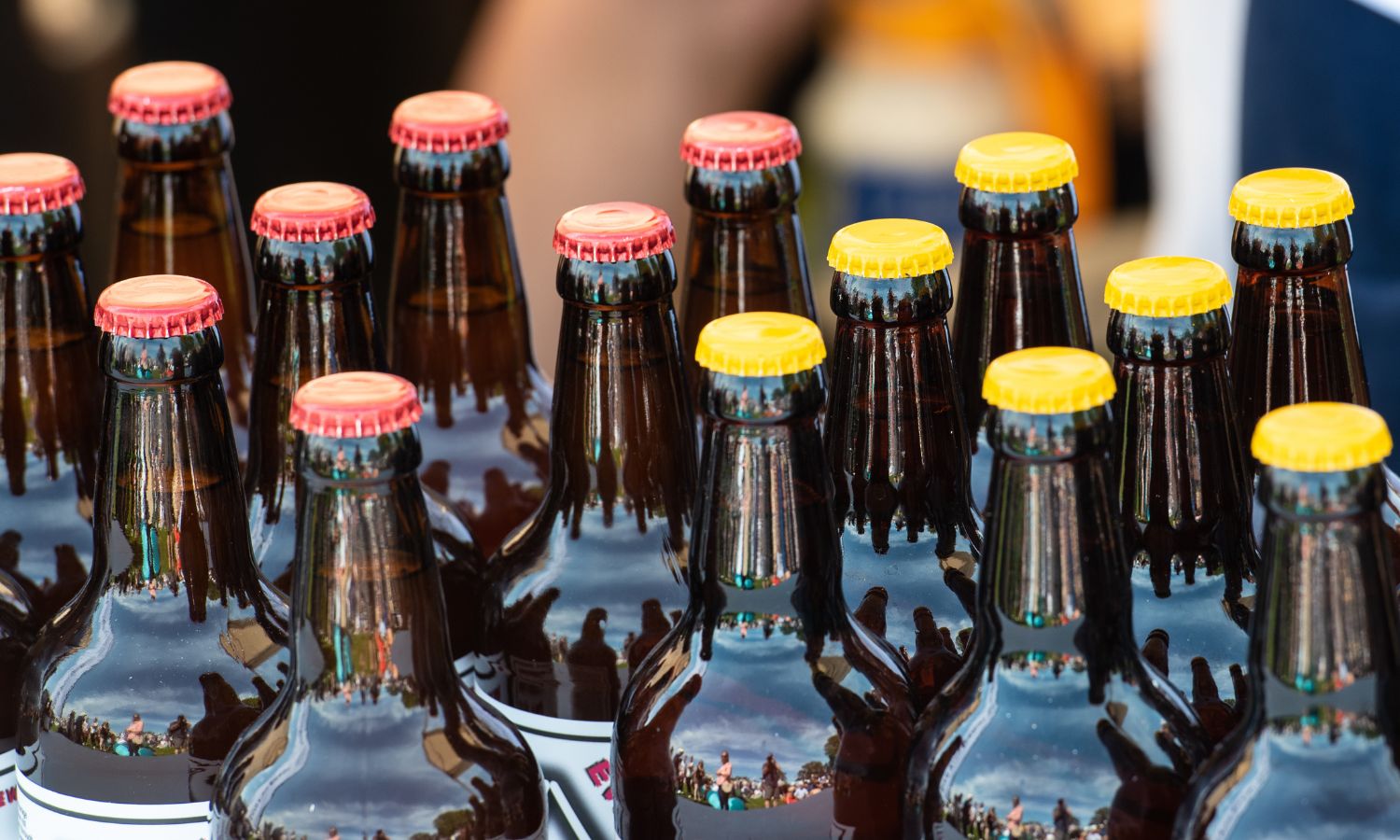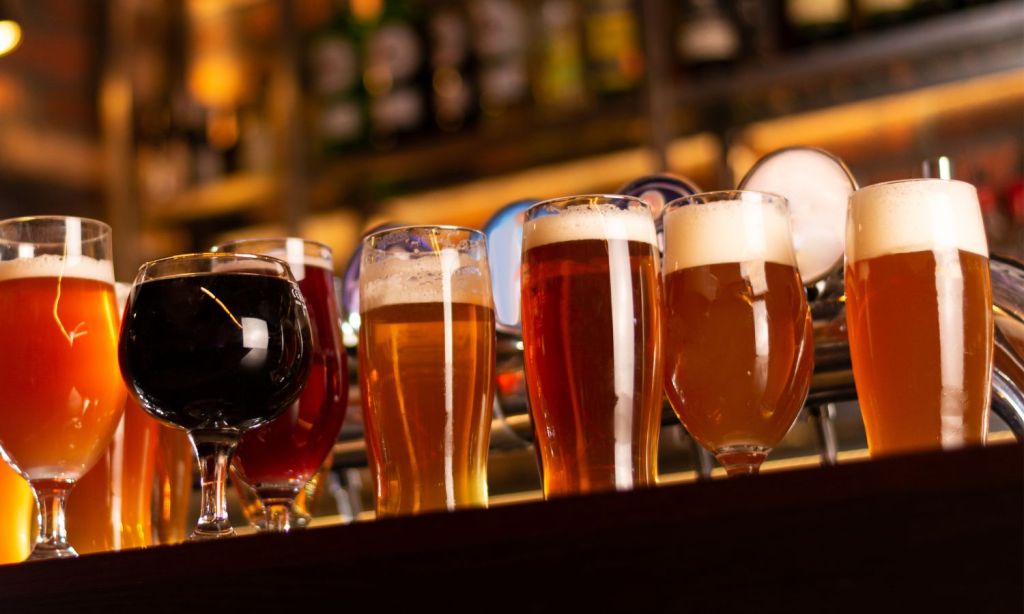“Craft is dead,” declared TikToker and brand strategy consultant Eugene Healey (@eugbrandstrat). “We want things to be a little bit trash.”
Healey explained that millennials became obsessed with craft beer due to the Global Financial Crisis around 2007-2009. After the excesses of capitalism, many were craving a simpler, slower time when things were done right. This resulted in a boom in craft beer brands and big brands stealing the craft narrative or creating beer that looks like craft.
“Now, funnily enough, mainstream is back in,” Healey says.
@eugbrandstrat The craft brand narrative is OVER. A little bit on what killed it, the worldview that’s replacing it, and how to tap into a culture that is looking for brands to embrace life as it really is – which is frankly, a little bit s**t. #brand #brandstrategy #brandidentity #marketingstrategy #marketing ♬ original sound – eugbrandstrat
But is Healey right in saying craft is entirely dead? The continued success of Australian independent beer brands, including Stomping Ground, Mountain Culture, Heaps Normal, Felons and Hawke’s, begs to differ.
The Growth of Australia’s Independent Beer Industry
In the few years pre-COVID, the number of independent breweries in Australia surged to record highs, says Mike Bray, managing director of the Great Australian Beer Spectapular (GABS) Festival, Australia and New Zealand’s biggest annual beer festival.
Consumers were spoilt for choice by breweries experimenting with unusual ingredients, brewing methods and beer styles. Steve Jeffares, co-founder of Stomping Ground, says pre-COVID, optimism in the industry was high with a steady stream of new brands.
Andy Miller, co-founder of Heaps Normal, says it’s been exciting to watch Australian brewers follow the global trend of independent beer and in many cases become trendsetters. “You only have to look at the popularity of Australian hop varieties abroad to see the influence our beer industry has had on brewing trends globally,” he says.

Harriet McCready, co-founder of Mountain Culture, likens Australia’s independent beer industry growth in the last decade to that in the US over 30 years. Dean Romeo, brand director of Felons, describes the growth as gobsmacking. He believes the growth is due to the narrative the brewery can provide its customers.
“The good beer industry, as I like to refer to it, is centred around the way something is made, how it is made and why it is made,” Romeo says.
The Challenges Independent Beer Brands Face
All was going swimmingly in Australia’s independent beer industry until COVID hit. Miller says we’re still seeing the effects of the pandemic today not just on independent brewers but across the small business and hospitality communities more broadly.
Jeffares adds that brewing and selling beer on a small scale is rarely profitable so the business can be hard to sustain. Passionate beer fans are behind many independent breweries. “These challenges mean it’s not as much fun anymore,” says Jeffares. “There aren’t many buyers of breweries so shutting up shop is sometimes the only option.”
Bray says in the last two years, the independent beer industry has experienced a correction in its exponential growth. Increased input costs and weakened demand due to increased cost of living and interest rates have all slowed growth.
“This has resulted in some closures but has not affected the passion and quality of beer produced by Australia’s incredibly talented breweries as it continues to reach new heights,” says Bray.
McCready says running a business is tough and sometimes closing is the right decision. Independent beer businesses are particularly tricky to keep running as they’re meant to be exciting and constantly innovating. Once the business is established, it’s easy to become rigid and lose that sense of creativity. “People move on and by the time the business realises, it can be too late,” McCready says.
Jaffares says that in the beer industry today, two foreign-owned brewing multinationals dominate the market. This leaves hundreds of indie breweries competing for the few non-contracted pub taps. Also, many bottle shops are consolidating their offerings. This makes it incredibly hard for independent beer businesses to survive.
The Future of Australia’s Independent Beer Industry
So what’s the state of Australia’s independent beer industry today? According to McCready: “It’s mellowing out now and is in a similar spot as overseas markets where it’s quality products that are cutting through the noise and outshining the rest.”
Romeo hopes to see the public supporting Australian breweries and the good work our farmers do to create world-class ingredients. Nathan Lennon, co-founder of Hawkes Brewing, says by nature, the craft industry is incredibly creative. The best brands will predict the changes they need to make if needed and will evolve.
“I see more breweries investing in their taprooms and venues and possibly questioning their previous plans for distribution growth,” says Lennon. “This would ensure most stay connected to their local communities which is great. Every town should have and support its own brewery.”
Bray points out that beer and breweries have been around longer than all of us. The local market will continue to adapt to consumer preferences and embrace innovation.
“Those solid foundations in quality production and brand marketing will thrive,” he says. “Craft is here to stay.”
Related: Is Telling a Sommelier Your Price Range a Big No-No?
Related: You Could Soon Find More Than Olives and Onions in Your Cocktails
Read more stories from The Latch and subscribe to our email newsletter.







